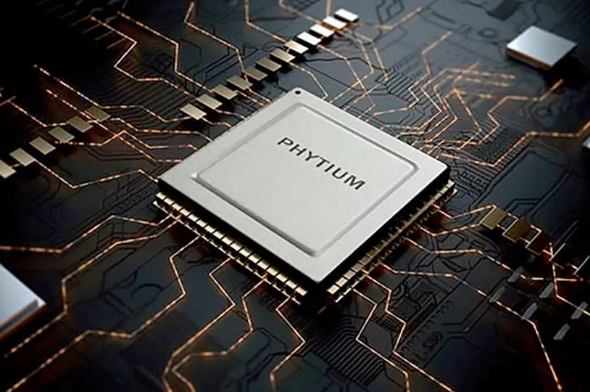Connection to DriversCloud Create a DriversCloud.com account Reset your DriversCloud.com password Account migration
Phytium develops an 8-core ARM processor for desktop machines
The CPU market is more competitive than ever, and Chinese companies are becoming increasingly interested in catching up.
Last October, the company Longsoon announced the marketing of the Dragon Core 3A4000, a 4-core processor primarily intended for the Chinese domestic market. It was then seen in a 13.3-inch laptop designed by BDY Electronics, again a Chinese company that develops its products for the domestic market of the Middle Kingdom. Compared to international standards, the Dragon Core A34000 may seem a bit "behind" with its 14nm etching. However, it shows the remarkable progress made by the Chinese industry in just a few years.
This progress was desired and supported by the central government, which is seeking above all to rid itself of American control over high-tech components, especially processors. It is therefore not surprising to see Chinese companies looking at ARM solutions. Phytium is one of the specialists of the genre in China and the announcement of the Phytium D2000 is only the logical continuation of the previous presentation of the Phytium FeiTeng-2000/4 made during the summer of 2020. If the FeiTeng-2000/4 was satisfied with 4 cores, the D2000 comes to double the stake.
For the rest, it is essentially a variant of the processor of this summer. We find the FCBGA format of 35 x 35 millimeters with a 1 144 pins support. The cache system also seems to be quite similar: however, there is now talk of 2 MB of L2 cache for two cores, or a total of 8 MB of L2 cache backed up by 4 MB of L3 cache. The D2000 should be able to reach frequencies between 2.3 and 2.6 GHz and will be able to handle DDR4 memory up to 3200. No graphics solution is integrated and support for PCIe 4.0 is logically not on the menu. Instead, a maximum of 34 PCIe 3.0 lines are provided.
Where things change radically is in the engraving finesse, which highlights the ever-increasing progress in China. Indeed, while the FeiTeng-2000/4 was content with a 16 nm process, Phytium has gone to 14 nm for its D2000 as Longsoon does on its Dragon Core.






